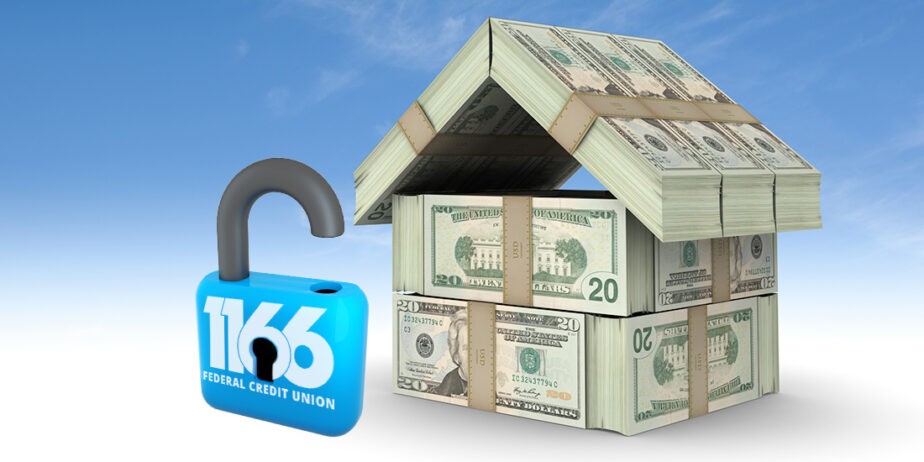Home is where the “equity” is. And the more you have of it, the better. But what is home equity, what is a home equity loan, and how do you make the most of these helpful resources?
What is Home Equity?
Simply put, home equity is your home’s current market value, minus the amount you owe on a mortgage.
For example, if your house is worth $200,000 (the current market value), and you owe $70,000 on your mortgage, your home equity is $130,000. When the value of your home increases, or the amount you owe on your home decreases, your home equity increases. Yay! If the value of your home decreases, or you take out an additional mortgage, your home equity decreases. Yikes!
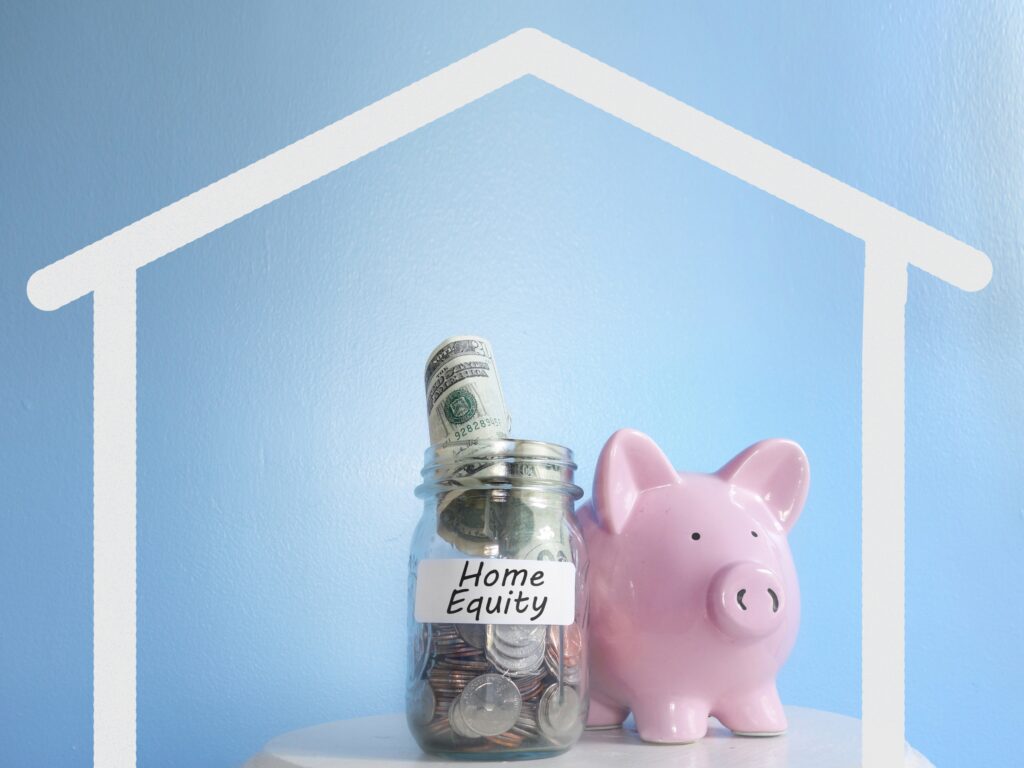
What is Negative Home Equity?
You DON’T want the amount you owe on your mortgage to surpass the current market value of your home. This is referred to as negative equity or an upside-down/underwater mortgage.
Homes with negative equity have a high chance of going into foreclosure — when the lender seizes the home because the borrower defaults by failing to make required payments.
Why?
An underwater mortgage makes it difficult for homeowners to sell their property or refinance their mortgage.
Quick pause: refinancing is when an individual replaces their current mortgage with a new one (usually with better terms).
Lenders are less likely to refinance underwater houses because there is more risk in the absence of stable collateral. For instance, if the homeowner defaults, the lender may not get enough money back to pay off the existing mortgage because of the home’s current, deflated market value. Now, the lender is in trouble, too.
To summarize, if a homeowner is struggling with their mortgage payments and they have negative equity, they lack options like refinancing. Unfortunately, in this case, foreclosure may be their best option.

Why Do I Want a Large Home Equity?
Having a large home equity is like having more gas in your tank, or money in a piggy bank; you have resources to help you reach larger goals. And if you have good home equity, you can use it as collateral for securing a home equity loan.
What are Home Equity Loans?
A home equity loan is a single disbursement at closing with a fixed interest rate.
Uhm…in English, please.
That’s just a fancy way of saying the borrower will get a lump sum payment when the loan closes (aka when the loan is approved and made official). The borrower will repay the loan, adhering to the established, fixed interest rate until it is paid in full. A fixed rate is good news because you can budget for this expense as it’s an unchanging monthly loan payment.
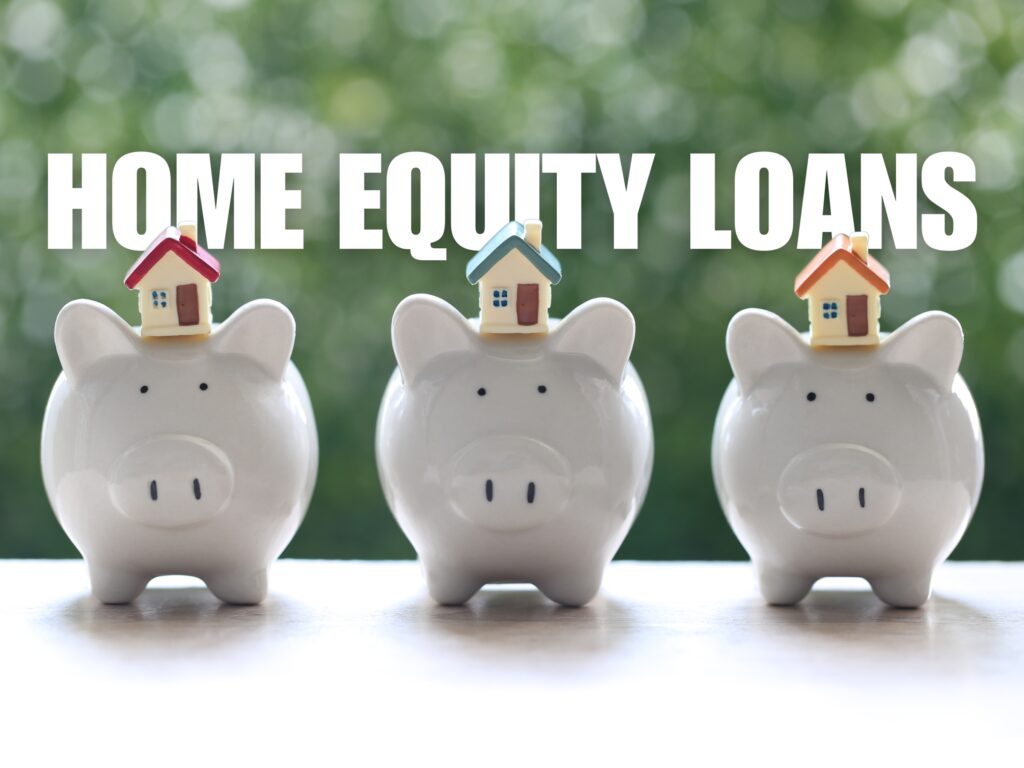
How Much Can I Borrow With A Home Equity Loan?
Your home equity determines the home equity loan amount you’re able to borrow. The better the home equity, the better the home equity loan. Typically, lenders will give you 80 to 85 percent of your home’s market value, minus your outstanding mortgage balance.
Here’s an example:
- The current market value of your home: $200,000
- 85% of 200,000 = $170,000
- Outstanding mortgage balance = $70,000
- Home equity loan sum = $170,000 – $70,000 = $100,000
If this were the case with your lender and financial circumstances, you could borrow up to $100,000. And the crowd goes wild!
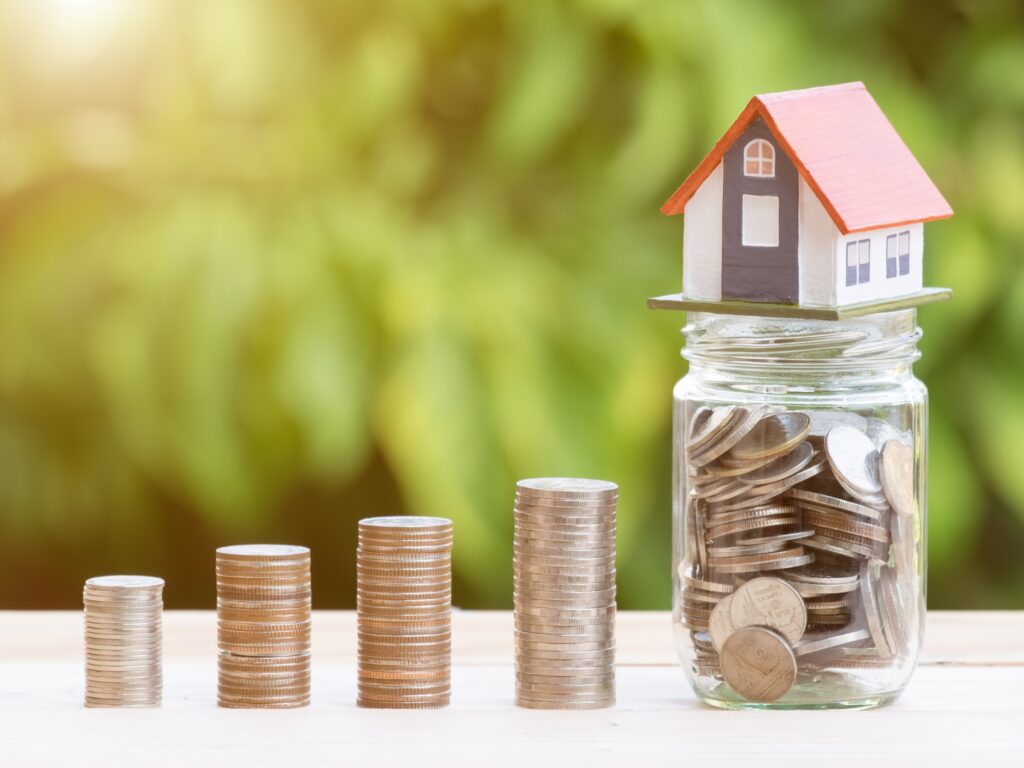
Warning: don’t treat your home equity loan like free money. Like all loans, you have to pay it back. If you don’t, the lender can foreclose on your home. That’s a consequence that should NOT be taken lightly.
Additionally, as you still have to pay back your initial outstanding mortgage balance, people often refer to home equity loans as a second mortgage.
Home equity loans increase your debt load, so make smart decisions that boost your equity or improve your financial wellness in the long run. For example, if you have high-interest debt, use a home equity loan to pay it off. It can help you lower your monthly expenses.
Why Should I Use a Home Equity Loan?
Before we cover more benefits of using a home equity loan, you may ask, “Why go with this borrowing option over others?” Home equity loans typically offer lower rates than personal loans or credit cards, making it less expensive to repay the borrowed amount over time. In addition, you get a lump sum at once rather than dealing with limits or time constraints. Keep in mind that it typically takes anywhere from two weeks to two months to get your home equity loan approved and receive the money.
If you’re looking to pay for a project that requires a bit of time, like remodeling, a home equity loan could save you money and help you reach your goals faster.
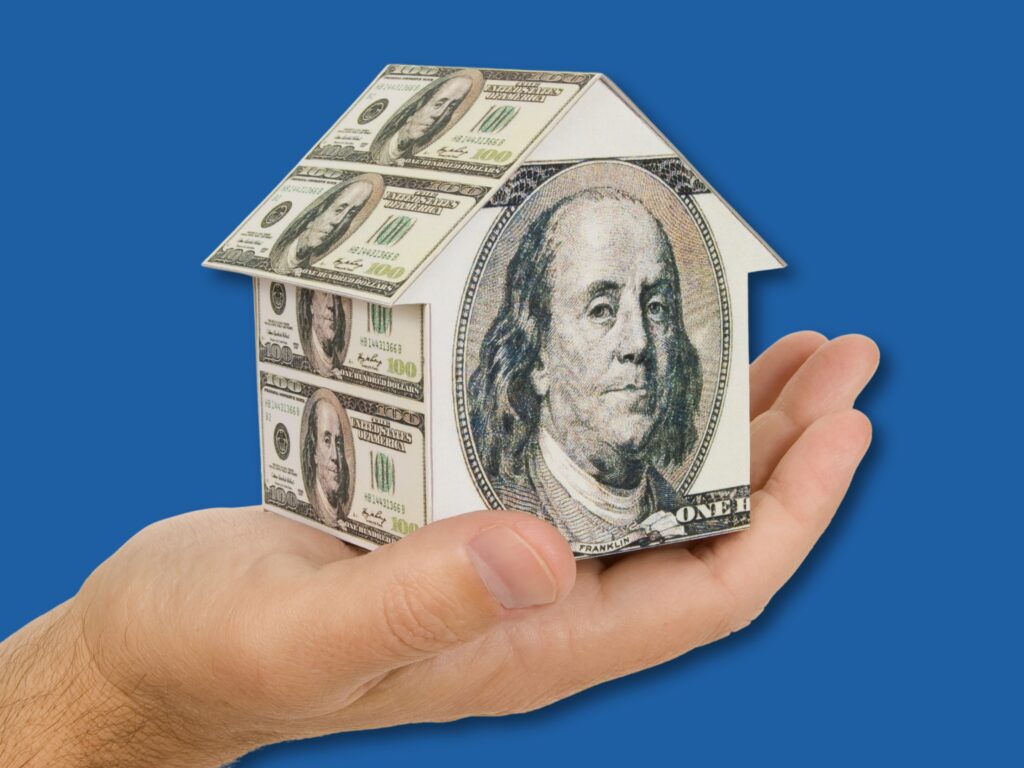
When and How Should I Use a Home Equity Loan?
According to the US Census Bureau’s Housing Survey, 50% of home equity loans are used to make home improvements. And for good reason!
Let’s say I’m in desperate need of a full kitchen remodel. Aside from needing a place to cook meals, completely upgrading my kitchen could increase my property’s value and boost my home equity. Here’s the kicker; I don’t have the funds to cover a full kitchen remodel so I’d have to save up for a long time, yet this is a current need.
But wait!
I could tap into my home equity and access a home equity loan! Additionally, if I use my home equity for qualifying home improvements, I may be able to deduct the interest on my home equity loan from my taxes.
New, soft-close kitchen cabinets here I come!

These loans aren’t only for home projects either. Home equity loans can help in the following areas:
- Debt consolidation
- Emergency expenses
- Wedding expenses
- Starting a business
- Additional large purchases
“Home Equity Loans: Pay Off Your Debts and Put Some Extra Money In Your Pocket”
– 1166 FCU board member and Chief Compliance Officer of Stern & Eisenberg Oliver Ayon
We always recommend considering all your options before landing on a borrowing solution like a home equity loan. Specifically for home improvements, here are three key factors to consider:
(1) How long do you plan on living in your home?
If you’re selling your home in the not-so-distant future, keep in mind that you will have to pay off your loan in full at closing.
(2) How much value will these improvements bring to your home?
Not all improvements are created equal. While a green cottage core kitchen fits my aesthetic preferences, the family looking at my for-sale property may want a less personalized, more practical, sleek stainless steel kitchen. In this situation, I’ve decreased the value of my home in terms of homebuyer appeal for the masses. On the other hand, new garage doors or hardwood floors don’t pass large costs or additional maintenance fees onto future owners, adding value to the property.
(3) How much money do I need for these improvements?
If you don’t have an estimate of how much projects will cost, you may want to consider a home equity line of credit (HELOC) as you can borrow what you need when you need it, similar to a credit card.
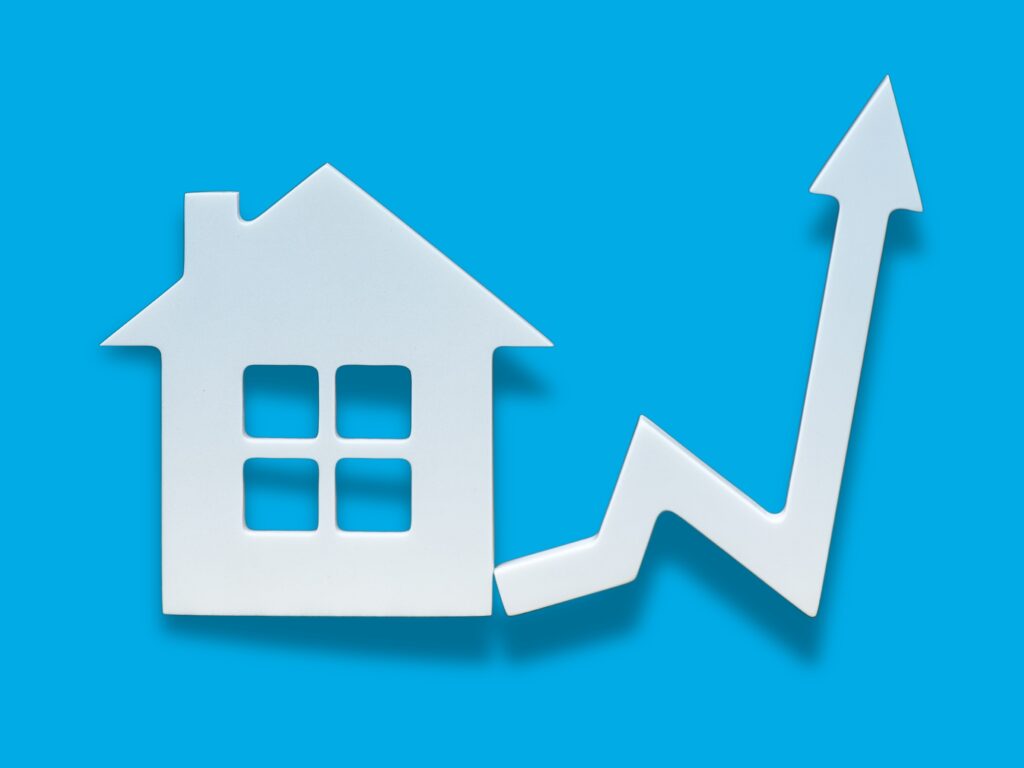
What is Cash-Out Refinancing?
One of the more common alternatives to home equity loans is cash-out refinancing. This option allows you to replace your mortgage with a larger new loan than you currently owe. What’s the benefit? You get to keep the difference between the new and the previous mortgage amount at the closing of the refinancing agreement. That money can help you reach other financial goals!
Let’s revisit our example:
- The current market value of your home = $200,000
- Outstanding mortgage balance = $70,000
- New mortgage (usually around 80% of current home value) = $160,000
- Cash amount you keep (new mortgage – old mortgage) = $90,000
That’s $90,000 in your pocket!
While this seems like a great deal, remember that you are now paying off a larger loan with different terms. And, expect to pay closing costs and fees in addition to the loan (lame, I know). Therefore, if mortgage rates have increased since you bought your home or the market changes, this may not be your best option as it can put your home underwater quickly. Additionally, as lenders look at your credit score, home equity, debt-to-income ratio, and how long you’ve owned the home, it’s harder to receive eligibility for cash-out refinancing. Nevertheless, this may be an available option you are eligible for.
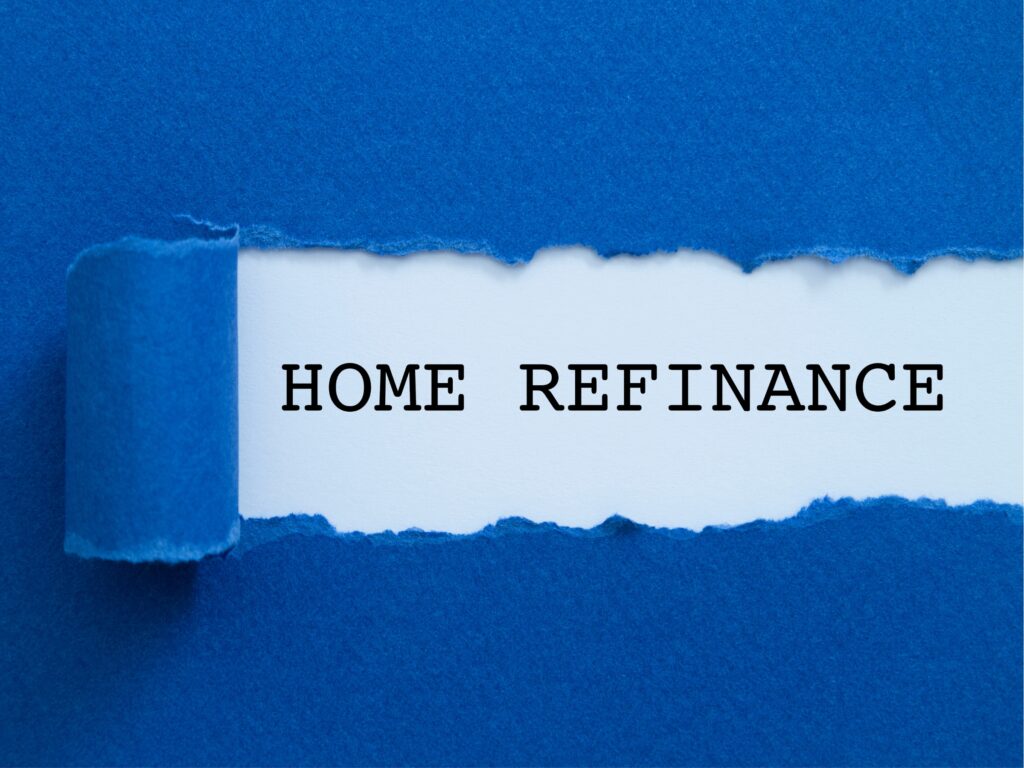
Home Equity Loans With 1166 FCU
Our loan department counselors are eager to help members secure the best borrowing solutions possible. Stop putting your goals on hold and contact our team today!
1166 FCU Home Equity Loan Rates:
- 5 years at 5.00% APR
- 7 years at 5.50% APR
- 10 years at 5.75% APR
- 15 years at 6.00% APR
*Rates subject to change at any time

